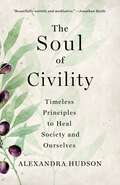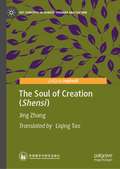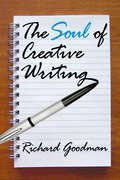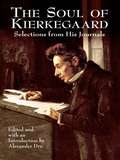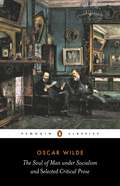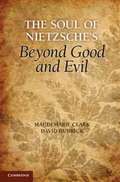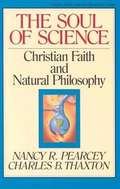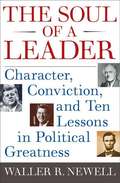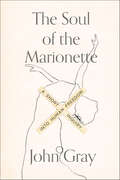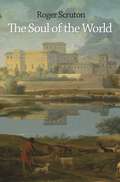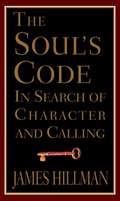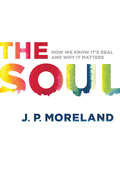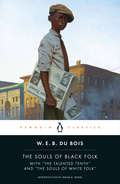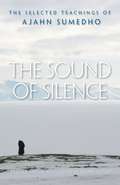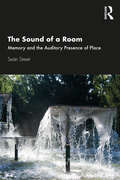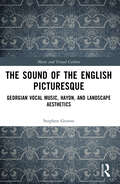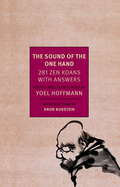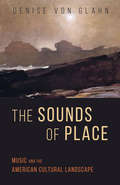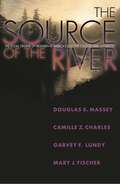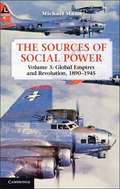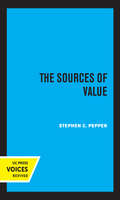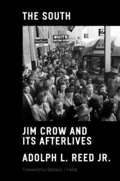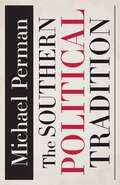- Table View
- List View
The Soul of Civility: Timeless Principles to Heal Society and Ourselves
by Alexandra HudsonAlexandra Hudson, daughter of the "Manners Lady," was raised to respect others. But as she grew up, Hudson discovered a difference between politeness—a superficial appearance of good manners—and true civility. In this timely book, Hudson sheds light on how civility can help bridge our political divide.From classical philosophers like Epictetus, to great twentieth-century thinkers like Martin Luther King Jr., to her own experience working in the federal government during one of the most politically fraught eras in our nation's history, Hudson examines how civility—a respect for the personhood and dignity of others—transcends political disagreements. Respecting someone means valuing them enough to tell them when you think they are wrong.It’s easy to look at the divided state of the world and blame our leaders, the media, or our education system. Instead, we should focus on what we can control: ourselves. The Soul of Civility empowers readers to live tolerantly with others despite deep differences, and to rigorously protest wrongs and debate issues rather than silencing disagreements. A robust public discourse is essential to a truly civil society, and respecting others means telling hard truths. If enough of us decide to change ourselves, we might be able to change the world we live in, too.Provocative, personal, and acutely relevant, The Soul of Civility is an essential book for our era.
The Soul of Creation (Key Concepts in Chinese Thought and Culture)
by Jing ZhangThis Key Concepts pivot explores the aesthetic concept of ‘imaginative contemplation.’ Drawing on key literature to provide a comprehensive and systematic study of the term, the book offers a unique analysis and definition of the connotations of the term, describing its aesthetic mentality and examining the issue of imaginative contemplation versus imagination in artistic creative thinking, especially as regards the characteristics of contingent thinking in aesthetics. It focuses on drawing parallels between imaginative contemplation and aesthetic emotions, aesthetic rationality, and artistic expression as well as aesthetic form. Examining the relationship between imaginative contemplation and the aesthetic configuration, the book provides a valuable introduction to aesthetic theory in Chinese philosophy and art.
The Soul of Creative Writing
by Richard Goodman"I have a faith in language," said the poet W. S. Merwin. "It's the ultimate achievement that we as a species have evolved so far." Language is a deep ocean of living words, as varied as undersea life. It is a gift inherited by each person when he or she is born; it can be corrupted and regulated, but it cannot be owned. It is an enormous, complex, inexhaustible gift. The Soul of Creative Writing is a tribute to language and to its potentials. It explores the elements of language, style, rhythm, sound, and the choice of the right word. Richard Goodman paints an image of how language can produce a life and meaning that otherwise cannot exist in the symbols themselves.Goodman's stunningly creative collection was written after a lifetime of working and struggling with language. He collects rich examples from writers of the past and present, both great and small, and uses them to illustrate how each element of our written language can be used. The book begins with an analysis of words and how they can be used to create music on the page. Goodman uncovers the strength of words, writing about the shades of meaning that make the search for the exact word both arduous and immensely rewarding. He discusses how to find the proper title and how to find a fitting subject. He show how to create nonfiction work that is vivid and memorable through the use of the same techniques fiction writers employ.Goodman's volume is written with humor and clarity--with fascination and reverence. Writers will find it an indispensable source of creative inspiration and instruction. In Goodman's words, "reading is a tour of a writer's efforts at manipulating language to create art, to create flesh and blood and mountains, cities, homes, and gardens out of inky symbols on the page." To literary critics, this book will be a guide to understanding the tools and devices of great writing.
The Soul of Kierkegaard: Selections from His Journals
by Søren Kierkegaard Alexander DruDenmark's foremost philosopher and religious writer, Søren Kierkegaard (1813-1855) maintained a journal throughout his adult life that amounted to more than 7,000 pages of alternative drafts of published works, biographical events, musings, and outpourings. A precursor of the Existential movement and a major influence on modern Protestant theology, Kierkegaard confided to his journal further reflections on the ideas developed in his philosophical and theological works, and on his tumultuous career as an author.
The Soul of Man Under Socialism and Selected Critical Prose
by Oscar WildeSelection includes The Portrait of Mr W.H., Wilde's defence of Dorian Gray, reviews, and the writings from 'Intentions' (1891): 'The Decay of Lying, 'Pen, Pencil, Poison', and 'The Critic as Artist'.Wilde is familiar to us as the ironic critic behind the social comedies, as the creator of the beautiful and doomed Dorian Gray, as the flamboyant aesthete and the demonised homosexual. This volume presents us with a different Wilde. Wilde emerges here as a deep and serious reader of literature and philosophy, and an eloquent and original thinker about society and art.
The Soul of Nietzsche'S beyond Good and Evil
by Maudemarie Clark David DudrickThis book presents a provocative new interpretation of Beyond Good and Evil, arguably Nietzsche's most important work. The problem is that it appears to express merely a loosely connected set of often questionable opinions. Can Nietzsche really be an important philosopher if this is his most important book? Maudemarie Clark and David Dudrick address this question with a close reading that emphasizes how Nietzsche writes. They argue that the first part of Beyond Good and Evil presents coherent and interconnected arguments for subtle and well-thought-out positions on traditional issues. Nietzsche's infamous doctrine of the will to power turns out to be a compelling account of the structure and origin of the human soul. And although he rejects some aspects of traditional philosophy, Nietzsche's aim is to show how philosophy's traditional aspirations to seek both the true and the good can be fulfilled. Beyond Good and Evil turns out to be a major work of philosophy and Nietzsche's masterpiece.
The Soul of Science: Christian Faith and Natural Philosophy (Turning Point Christian Worldview #16)
by Nancy Pearcey Marvin Olasky Charles ThaxtonThis Turning Point book surveys the development of science and its historic and present relationship to Christianity, and re-introduces believers to their rich intellectual heritage.
The Soul of a Leader
by Waller R. NewellWhat are we looking for in a leader? Has the meaning of leadership changed? Can history provide guidance for the leaders of a rising generation? What defines the soul of a leader? In The Soul of a Leader, political scientist and cultural commentator Waller R. Newell offers a fascinating perspective on the role of leadership in American life today. From the birth of democracy in Periclean Athens to the Founding Fathers' view of statesmanship, from the experiences of Abraham Lincoln to those of modern presidents, this far-reaching and provocative new book explores the many and diverse elements of good statesmanhip, including the timeless qualities all good leaders share. As Newell plumbs the depths of history, he illuminates the moral, psychological, and intellectual resources we inherit from the traditions of the West--traditions steeped in the experience and reflection on statecraft from ancient times onward--and offers a compass for the challenges America's next generation of leaders will face. In this engaging blend of character portraiture, historical perspective, and contemporary political insight, Newell proposes a bold new perspective on the evolution of the modern American presidency, from Franklin Roosevelt to George W. Bush. He steps back in time to evaluate the clashing models of Lincoln and Robert E. Lee, as they captured the struggle for the soul of the American Republic. And, in an essay of masterful historical reach, he contemplates the roots of modern leadership in the story of what he calls "the West's first superpower conflict"--the epic battle between Athens and Sparta, with its echoes of both Vietnam and Iraq. Finally, he draws from these stories ten lessons in political greatness--lessons the next American president will be wise to heed.
The Soul of the Marionette: A Short Inquiry into Human Freedom
by John GrayCompared with that of humans, the life of the marionette looks more like an enviable state of freedomIn his brilliantly enjoyable and freewheeling new book, John Gray draws together the religious, philosophic, and fantastical traditions that question the very idea of human freedom. We flatter ourselves about the nature of free will and yet the most enormous forces—logical, physical, metaphysical—constrain our every action. Many writers and intellectuals have always understood this, but instead of embracing our condition we battle against it, with everyone from world conquerors to modern scientists dreaming of a "human dominion" almost comically at odds with our true state. Filled with wonderful examples and drawing on the widest possible reading (from the Gnostics to Philip K. Dick), The Soul of the Marionette is a stimulating and engaging meditation on everything from cybernetics to the fairground marionettes of the title.
The Soul of the World
by Roger ScrutonA compelling defense of the sacred from acclaimed philosopher Roger ScrutonIn The Soul of the World, renowned philosopher Roger Scruton defends the experience of the sacred against today's fashionable forms of atheism. He argues that our personal relationships, moral intuitions, and aesthetic judgments hint at a transcendent dimension that cannot be understood through the lens of science alone. To be fully alive—and to understand what we are—is to acknowledge the reality of sacred things. Rather than an argument for the existence of God, or a defense of the truth of religion, the book is an extended reflection on why a sense of the sacred is essential to human life—and what the final loss of the sacred would mean. In short, the book addresses the most important question of modernity: what is left of our aspirations after science has delivered its verdict about what we are?Drawing on art, architecture, music, and literature, Scruton suggests that the highest forms of human experience and expression tell the story of our religious need, and of our quest for the being who might answer it, and that this search for the sacred endows the world with a soul. Evolution cannot explain our conception of the sacred; neuroscience is irrelevant to our interpersonal relationships, which provide a model for our posture toward God; and scientific understanding has nothing to say about the experience of beauty, which provides a God’s-eye perspective on reality.Ultimately, a world without the sacred would be a completely different world—one in which we humans are not truly at home. Yet despite the shrinking place for the sacred in today’s world, Scruton says, the paths to transcendence remain open.
The Soul's Code: In Search of Character and Calling
by James HillmanPlato and the Greeks called it "daimon," the Romans "genius," the Christians "guardian angel." Today we use the terms heart, spirit, and soul. To James Hillman, the acknowledged intellectual source for Thomas Moore's bestselling sensation Care of the Soul, it is the central and guiding force of his utterly compelling "acorn theory"--in which each life is formed by a unique image, an image that is the essence of that life and calls it to a destiny, just as the mighty oak's destiny is written in the tiny acorn. In this new look at age-old themes, Hillman provides a radical, frequently amusing, and highly accessible path to realization through an extensive array of examples. He urges his readers to discover the "blueprints" particular to their own individual lives, certain that there is more to life than can be explained by genetics or environment. As he says, "We need a fresh way of looking at the importance of our lives." What The Soul's Code offers is an inspirational, positive approach to life--a way of seeing, and a way of recovering what has been lost of our intrinsic selves.
The Soul: How We Know It's Real and Why It Matters
by J. P. MorelandIn a culture in which science is believed to hold the answers to every question, spiritual realities like the soul are often ignored or ridiculed. We are told that neuroscience holds the key to explaining every aspect of human behavior. Yet Christian philosopher J. P. Moreland argues that Scripture, sound philosophical reasoning, and everyday experience all point to the reality of an immaterial soul. Countering the arguments of both naturalists and Christian scholars who embrace a material-only view of humanity, Moreland demonstrates why it is both biblical and reasonable to believe humans are essentially spiritual beings. He also describes the various components of the soul and how Christians can nurture their souls as disciples of Christ. Moreland shows that neuroscience and the soul are not competing explanations of human activity, but that both coexist and influence one another.
The Soul: How We Know It's Real and Why It Matters
by J. P. MorelandIn a culture in which science is believed to hold the answers to every question, spiritual realities like the soul are often ignored or ridiculed. We are told that neuroscience holds the key to explaining every aspect of human behavior. Yet Christian philosopher J. P. Moreland argues that Scripture, sound philosophical reasoning, and everyday experience all point to the reality of an immaterial soul. Countering the arguments of both naturalists and Christian scholars who embrace a material-only view of humanity, Moreland demonstrates why it is both biblical and reasonable to believe humans are essentially spiritual beings. He also describes the various components of the soul and how Christians can nurture their souls as disciples of Christ. Moreland shows that neuroscience and the soul are not competing explanations of human activity, but that both coexist and influence one another.
The Souls of Black Folk: With "The Talented Tenth" and "The Souls of White Folk"
by Donald B. Gibson W. E. Du Bois Monica E. ElbertDu Bois' 1903 collection of essays is a thoughtful, articulate exploration of the moral and intellectual issues surrounding the perception of blacks within American society.
The Sound of Silence
by Ajahn Amaro Ajahn Sumedho Samanera AmaranathoThe sound of silence is like a subtlety behind everything that you awaken to; you don't notice it if you're seeking the extremes. Yet as we start to become more poised, more present, fully receptive of all this moment has to offer, we start to experience it vividly and listening to it can draw us ever--deeper into the mysteries of now. Always skillful and good humored, Ajahn Sumedho's teachings defy boundaries. Anyone--from laypeople looking to deepen their grasp of the Buddha's message, to lifetime Buddhist monastics--will appreciate the author's sparkling insights into to such key Buddhist themes as awareness, consciousness, identity, relief from suffering, and mindfulness of the body. The Sound of Silence represents the best of Ajahn Sumedho's masterful work to help us all see each life with a new and sustaining clarity.
The Sound of a Room: Memory and the Auditory Presence of Place
by Seán StreetWhat does a place sound like – and how does the sound of place affect our perceptions, experiences, and memories? The Sound of a Room takes a poetic and philosophical approach to exploring these questions, providing a thoughtful investigation of the sonic aesthetics of our lived environments. Moving through a series of location-based case studies, the author uses his own field recordings as the jumping-off point to consider the underlying questions of how sonic environments interact with our ideas of self, sense of creativity, and memories. Advocating an awareness born of deep listening, this book offers practical and poetic insights for researchers, practitioners, and students of sound.
The Sound of the English Picturesque: Georgian Vocal Music, Haydn, and Landscape Aesthetics (Music and Visual Culture)
by Stephen GrovesRevealing the connections between the veneration of national landscape and eighteenth- century English vocal music, this study restores English music’s relationship with the picturesque. In the eighteenth century, the emerging taste for the picturesque was central to British aesthetics, as poets and painters gained popularity by glorifying the local landscape in works concurrent with the emergence of native countryside tourism. Yet English music was seldom discussed as a medium for conveying national scenic beauty. Stephen Groves explores this gap, and shows how secular song, the glee, and national theatre music expressed a uniquely English engagement with landscape. Using an interdisciplinary approach, Groves addresses the apparent ‘silence’ of the English picturesque. The book draws on analysis of the visualisations present in the texts of English vocal music, and their musical treatment, to demonstrate how local composers incorporated celebrations of landscape into their works. The final chapter shows that the English picturesque was a crucial influence on Joseph Haydn’s oratorio The Seasons. Suitable for anyone with an interest in eighteenth- century music, aesthetics, and the natural environment, this book will appeal to a wide range of specialists and non- specialists alike.
The Sound of the One Hand: 281 Zen Koans with Answers
by Dror Burstein Yoel Hoffmann Yoel HoffmanWhen The Sound of the One Hand came out in Japan in 1916 it caused a scandal. Zen was a secretive practice, its wisdom relayed from master to novice in strictest privacy. That a handbook existed recording not only the riddling koans that are central to Zen teaching but also detailing the answers to them seemed to mark Zen as rote, not revelatory.For all that, The Sound of the One Hand opens the door to Zen like no other book. Including koans that go back to the master who first brought the koan teaching method from China to Japan in the eighteenth century, this book offers, in the words of the translator, editor, and Zen initiate Yoel Hoffmann, "the clearest, most detailed, and most correct picture of Zen" that can be found. What we have here is an extraordinary introduction to Zen thought as lived thought, a treasury of problems, paradoxes, and performance that will appeal to artists, writers, and philosophers as well as Buddhists and students of religion.
The Sounds of Place: Music and the American Cultural Landscape (Music in American Life)
by Denise Von GlahnComposers like Charles Ives, Duke Ellington, Aaron Copland, and Ellen Taaffe Zwilich created works that indelibly commemorated American places. Denise Von Glahn analyzes the soundscapes of fourteen figures whose "place pieces" tell us much about the nation's search for its own voice and about its ever-changing sense of self. She connects each composer's feelings about the United States and their reasons for creating a piece to the music, while analyzing their compositional techniques, tunes, and styles. Approaching the compositions in chronological order, Von Glahn reveals how works that celebrated the wilderness gave way to music engaged with humanity's influence--benign and otherwise--on the landscape, before environmentalism inspired a return to nature themes in the late twentieth century. Wide-ranging and astute, The Sounds of Place explores high art music's role in the making of national myth and memory.
The Source of the River: The Social Origins of Freshmen at America's Selective Colleges and Universities (The William G. Bowen Series #43)
by Douglas S. Massey Garvey Lundy Mary J. Fischer Camille Z. CharlesAfrican Americans and Latinos earn lower grades and drop out of college more often than whites or Asians. Yet thirty years after deliberate minority recruitment efforts began, we still don't know why. In The Shape of the River, William Bowen and Derek Bok documented the benefits of affirmative action for minority students, their communities, and the nation at large. But they also found that too many failed to achieve academic success. In The Source of the River, Douglas Massey and his colleagues investigate the roots of minority underperformance in selective colleges and universities. They explain how such factors as neighborhood, family, peer group, and early schooling influence the academic performance of students from differing racial and ethnic origins and differing social classes. Drawing on a major new source of data--the National Longitudinal Survey of Freshmen--the authors undertake a comprehensive analysis of the diverse pathways by which whites, African Americans, Latinos, and Asians enter American higher education. Theirs is the first study to document the different characteristics that students bring to campus and to trace out the influence of these differences on later academic performance. They show that black and Latino students do not enter college disadvantaged by a lack of self-esteem. In fact, overconfidence is more common than low self-confidence among some minority students. Despite this, minority students are adversely affected by racist stereotypes of intellectual inferiority. Although academic preparation is the strongest predictor of college performance, shortfalls in academic preparation are themselves largely a matter of socioeconomic disadvantage and racial segregation. Presenting important new findings, The Source of the River documents the ongoing power of race to shape the life chances of America's young people, even among the most talented and able.
The Sources of Normativity
by Christine M. KorsgaardEthical concepts are, or purport to be, normative. They make claims on us: they command, oblige, recommend, or guide. Or at least when we invoke them, we make claims on one another; but where does their authority over us - or ours over one another - come from? Christine Korsgaard identifies four accounts of the source of normativity that have been advocated by modern moral philosophers: voluntarism, realism, reflective endorsement, and the appeal to autonomy. She traces their history, showing how each developed in response to the prior one and comparing their early versions with those on the contemporary philosophical scene. Kant's theory that normativity springs from our own autonomy emerges as a synthesis of the other three, and Korsgaard concludes with her own version of the Kantian account. Her discussion is followed by commentary from G. A. Cohen, Raymond Geuss, Thomas Nagel, and Bernard Williams, and a reply by Korsgaard.
The Sources of Social Power
by Michael MannDistinguishing four sources of power – ideological, economic, military and political – this series traces their interrelations throughout human history. This third volume of Michael Mann's analytical history of social power begins with nineteenth-century global empires and continues with a global history of the twentieth century up to 1945. Mann focuses on the interrelated development of capitalism, nation-states and empires. Volume 3 discusses the 'Great Divergence' between the fortunes of the West and the rest of the world; the self-destruction of European and Japanese power in two world wars; the Great Depression; the rise of American and Soviet power; the rivalry between capitalism, socialism and fascism; and the triumph of a reformed and democratic capitalism.
The Sources of Value
by Stephen C. PepperThis title is part of UC Press's Voices Revived program, which commemorates University of California Press’s mission to seek out and cultivate the brightest minds and give them voice, reach, and impact. Drawing on a backlist dating to 1893, Voices Revived makes high-quality, peer-reviewed scholarship accessible once again using print-on-demand technology. This title was originally published in 1958.
The South: Jim Crow and Its Afterlives
by Adolph L. ReedA narrative account of Jim Crow as people experienced itThe last generation of Americans with a living memory of Jim Crow will soon disappear. They leave behind a collective memory of segregation shaped increasingly by its horrors and heroic defeat but not a nuanced understanding of everyday life in Jim Crow America. In The South, Adolph L. Reed Jr. — New Orleanian, political scientist, and according to Cornel West, &“the greatest democratic theorist of his generation&” — takes up the urgent task of recounting the granular realities of life in the last decades of the Jim Crow South.Reed illuminates the multifaceted structures of the segregationist order. Through his personal history and political acumen, we see America&’s apartheid system from the ground up, not just its legal framework or systems of power, but the way these systems structured the day-to-day interactions, lives, and ambitions of ordinary working people.The South unravels the personal and political dimensions of the Jim Crow order, revealing the sources and objectives of this unstable regime, its contradictions and precarity, and the social order that would replace it.The South is more than a memoir or a history. Filled with analysis and fascinating firsthand accounts of the operation of the system that codified and enshrined racial inequality, this book is required reading for anyone seeking a deeper understanding of America's second peculiar institution the future created in its wake.With a foreword from Barbara Fields, co-author of the acclaimed Racecraft.
The Southern Political Tradition: Poems (Walter Lynwood Fleming Lectures in Southern History)
by Michael PermanIn The Southern Political Tradition, the distinguished southern historian Michael Perman explores the region's distinctive political practices and behaviors, primarily resulting from the South's perception of itself as a minority under attack from the 1820s to the 1960s. Drawing on his extensive research and understanding of southern politics, Perman singles out three features of the area's political history. He calls the first element "The One-Party Paradigm," a political system characterized by one-party dominance rather than competition between two or more. The second feature, "The Frontier and Filibuster Defense," illustrates a dramatic, preemptive response within Congress to any threat to the region's racial order. And in the third, "The Over-Representation Mechanism," Perman describes the skillful manipulation of institutional mechanisms in Congress that resulted in greater influence than the region's relatively small population warranted.This anomalous tradition has all but disappeared since the Civil Rights Act of 1964 and the Voting Rights Act of 1965. The Southern Political Tradition offers an insightful and provocative perspective on the South's political history.
